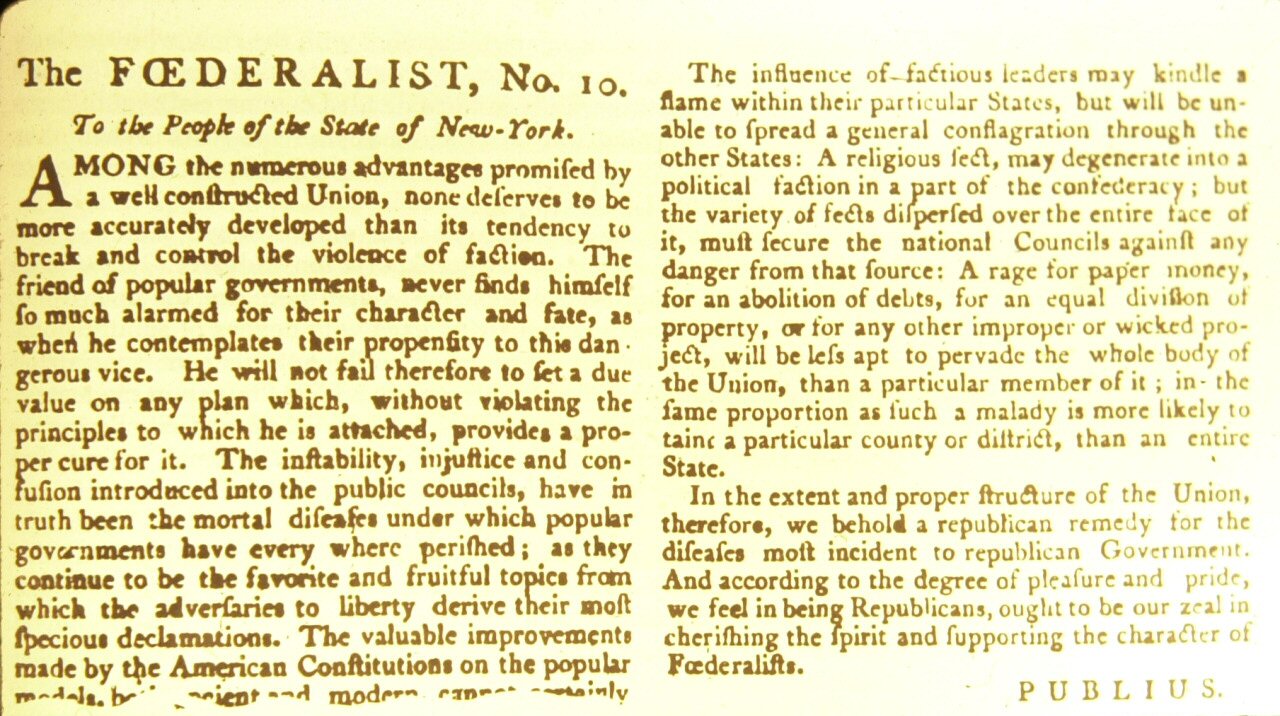Behind the Scenes: The Federalist Today
Professors Matthew Parks and David Corbin, who teach politics at The King’s College, keep their political acumen sharp by writing insightful weekly articles. These articles are part of The Federalist Today.

Though summer may now be in full swing, our professors are still hard at work. In fact, this is the time of year when many of our professors are able to work on projects in their spheres of influence.
Professors Matthew Parks and David Corbin, who teach politics at The King’s College, keep their political acumen sharp by writing insightful weekly articles. These articles are part of The Federalist Today, a series of essays they originally launched last summer atTheBlaze to apply political wisdom from the Federalist Papers to current issues in America. The series continues today at The Federalist, a website for political writing.
Drs. Parks and Corbin sat down with the college to give you a look at The Federalist Today, the contemporary American political thinker, and what the future holds.
What is your “elevator pitch” for The Federalist Today?
It’s not so much a pitch, but when people ask us what we’re attempting to do at the start of each media appearance, we explain that we’re going through the 85 Federalist Papers with the intent to distill the main principle(s) of each and then apply those principles to contemporary politics.
How do you collaborate on articles? Does one person come up with an idea, and the other add to it?
Early in the week, we each read the next Federalist essay. Wednesday or Thursday we talk through the main points of the essay and its intersection with current events. Friday is our principal writing day. Usually, we’ll divide the essay into sections and then write the first draft of our respective sections on a shared document. We then revise each other’s work. Usually by the end of the day on Friday, we have a full draft or close to it. Saturday morning, we clean it up and often read it through together. We then send it off to Prof. Wilkinson for a quick editing session and then off to the editors at The Federalist.
Tell us about your relationship with The Federalist and how that partnership came about.
Ben Domenech, who had earlier commissioned us to write an essay for The City Journal, was in the beginning stages of developingThe Federalist and asked if we would be interested in writing exclusively for the site. We looked at what his group had done to that point and thought that it would be a great platform for our efforts moving forward.
Which of the 85 Federalist Papers directly apply to the whole of contemporary American politics?
Federalist 10 is an excellent inquiry into human nature – in the founding days and in our own. The same could be said for Federalist 37 and 51 as excellent inquiries into the nature of humanity and political ambition, respectively. Taken together, we all would do well in any age to hunt big intellectual game by examining these seminal inquiries into relevant subjects.
Are you working on another book? Once the essay series is complete, do you plan on turning them into a book?
We have two books in mind. One will be a lightly-edited compilation of our 85 essays, tentatively titled The Republic of Republics. The other will be a more scholarly treatment of the major theme of the essays: the rivalry between the ideas of Publius and the leading principles of progressivism. We’re in the early stages of working with a publisher on this project, tentatively titled Publius and the Progressives.
Midway through your Federalist series, what have you learned (in terms of response to and interaction with your work) about the contemporary American political thinker? What is he missing? What is he getting right?
To borrow from the introduction of our longer essay in The City Journal, we’d suggest that what is missing is an idea as to the means to a new birth of freedom for the American republic given the “deep division within our political community that makes talk about the common good seem either cynical or naive.” That many citizens are rightly upset by the progressive refashioning of the United States is unquestioned. Is it possible to harness those passions in a constructive manner? The Federalist Papers were an attempt to harness revolutionary passions in 1787 by providing a thorough explanation for the newly framed Federal Constitution (a proposed form of government that, in turn, was structured to do the same).
While the Founders never claimed their political blueprint was perfect, they did think that it took into account like no other constitution before it human nature and the tendencies of the revolutionary modern democratic age. We suggest that we would do well to look at their architectural plan as we consider what renovations are necessary if we want to maintain the integrity and justness of their original design. In other words, what can a chastened liberalism teach a progressive liberalism that has run amuck without becoming illiberally reactionary itself?




